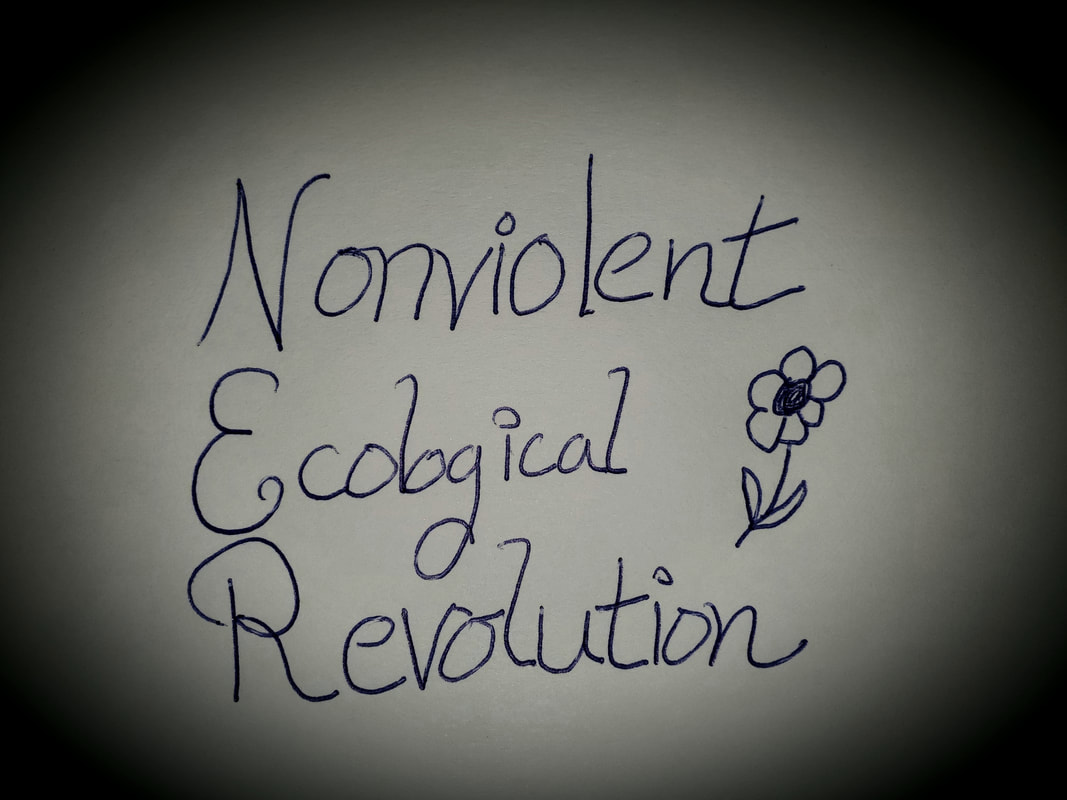
Nonviolent. Peace begins by with making peace with oneself—and it expands beyond the self to the family, community, classroom, non-human animals living in our neighborhoods, and ultimately to the planet. But peace needs to initiate in the self. Global peace is impossible without self-peace, first. We don’t plant the weeds of war in our gardens of peace. Cultivating a peaceful classroom seems impossible without initially cultivating self-peace. Internal hierarchies and psychological self-war emerge as the initial barrier—a challenging barrier to cultivating nonviolent ecological revolution through music teaching practice. And so, meditation becomes essential. A daily practice of slowing down and reconnecting--a practice of silence—can improve our ability to cultivate nonviolent classrooms. Not only does silence help us prepare for making music, but also silence helps us listen compassionately to the noise our students bring to the classroom. By hearing their pain, and helping them make sense of and resolve it, we can begin to teach music. First things first.
Ecological. Ecology (except when the term is misused by scholars spending too much time in an institution and too little in a park) has always referred to those relationships between humans, non-human animals, and geographical places. Rachel Carson called ecology “the web of life” in her seminal ecological critique, Silent Spring, and I’ve never heard a better, simpler definition. Life is an interconnected web, and to the extent that musicking happens it happens along the strands of that web. Connecting life to life. When we commit sincerely to ecological teaching, we commit to supporting the web of life in its fullness—the relationships between the humans and non-human animals in our classrooms; the relationships between the students and soil, air, water, and food; the relationships between diverse local musics; the relationships between ourselves and our ancestors, our history. Ecology doesn’t mean just anything. It means home—it refers to familial relationships. And we are sisters with the sun and moon, brothers with bugs and birds. An ecological music education, then, is ecological in its fullest sense, where the soundscapes and diverse range of human-made musics are all part of pedagogy. Where generations of the students’ ancestors’ musics are a cornerstone of curriculum. Not abstract generalizables bought from global capitalist corporations. Local.
Revolution. After we have learned nonviolence and ecology, we’re ready to effectively notice and enact revolution. We understand just how our violent, anti-ecological (individualist) system dissects people from their due peace and ecological being. And then that same system teaches children that violence, competition, individualism, and uprootedness are “natural” or even good. It teaches them that their parents (and ancestors) are yahoos, and that learning happens in institutional walls. Schools are a wasteful system creating material waste—generalizables, often plastic, bought from global capitalist corporations—and human waste—labeling some students as graduates and others as failures, musicians and non-musicians. The unjust hierarchies, paralleling those in the economics of capitalism, are taught. Educated. But, normatively speaking, we are peaceful, ecological beings. Homo sapiens have thrived and musicked for 200,000 years without making the planet unlivable. It is only in the last 200 that we have begun consuming and destroying at a global scale. It is only been 200 years since the start of the industrial revolution. Two-hundred years of a new market system called capitalism or, more recently, neoliberalism. But the response to global capitalism is local action. Nonviolent action (where many generations of communists went wrong). Ecological action (where many activists go wrong). The roots of our society, in 2019, are ill. Sick from injustices. Injustice upon in justice as the Global North destroys the Global South, the bourgeoisie destroys the workers, and humans destroy nature. I hold that the roots of all injustices—racial, gendered, ablenormative, urbanormative, etc.—are healed through peace and ecology. Nonviolent ecological revolution.
DJS
 RSS Feed
RSS Feed
